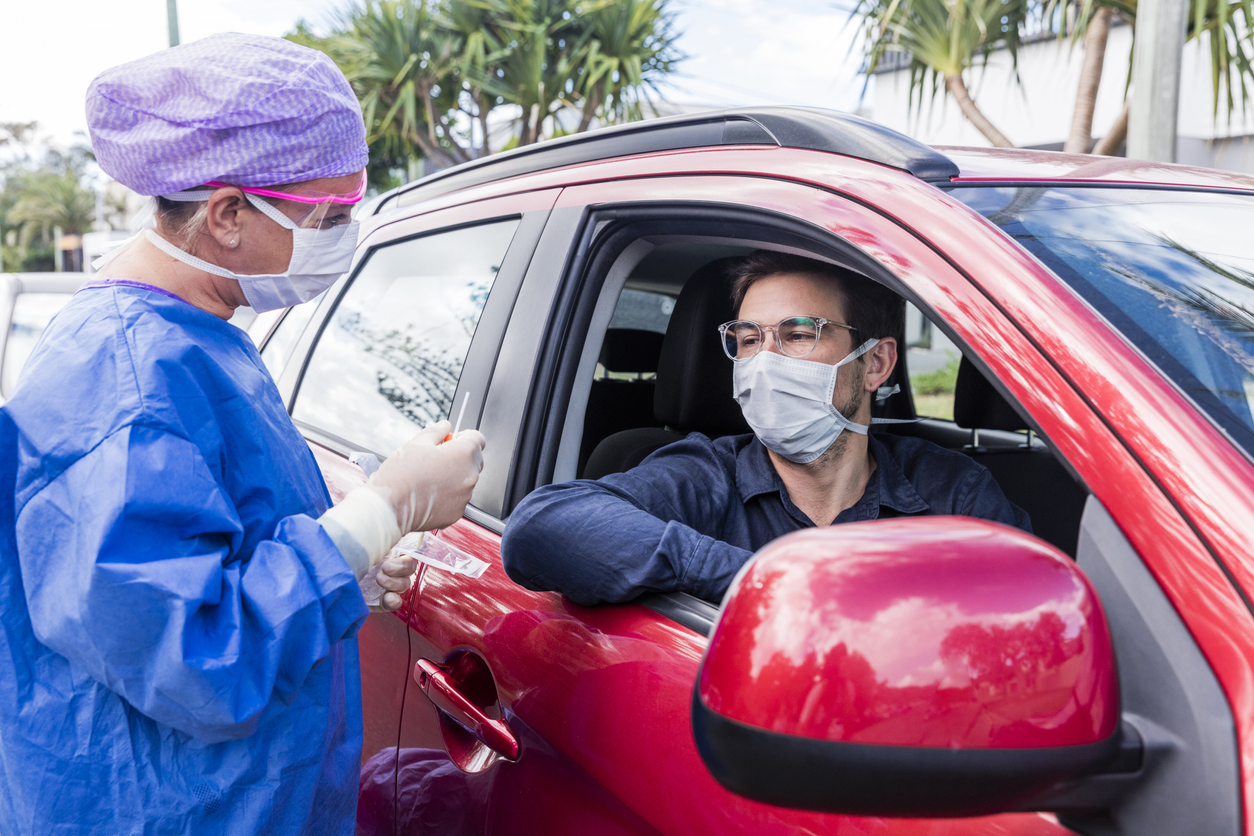During this pandemic, it is probably unlikely that you have not heard of the widespread development and utilization of COVID-19 testing options around the world. Whether you are trying to make the decision to receive a test yourself, refer a friend or family member to receive a test, or if you are just curious about some of the facts surrounding current testing options for COVID-19; at YourTown Health, we have outlined some useful information and resources to help alleviate any confusion or concern during this time of uncertainty.
What Type of Tests Are Available?
Currently, there are two different types of tests available for COVID-19: the viral test and the antibody test.
Simply put, the viral test will determine whether an individual is infected with COVID-19 at the time of receiving the test. On the contrary, an antibody test will tell the individual if they have been infected with COVID-19 in the past.
Although the presence of the antibodies can tell an individual if they have previously been infected by the virus, it is still unknown as to whether the presence of the antibodies can “protect” or ensure any immunity from COVID-19.
At YourTown Health, we currently offer the viral test. As of now, no antibody tests are available through YourTown Health.
Should I Get Tested for COVID-19?
Making the decision of whether to get tested for COVID-19 can be challenging. At YourTown Health, we have provided some general guidelines for you, in compliance with the CDC, to help steer your decisions.
Many people that have contracted the virus but fall under the “low risk” category for serious complications, can often recover at home without any outside medical care. At YourTown Health, we recommend testing for all asymptomatic and symptomatic patients in order to mitigate the spread of the virus. If your symptoms begin to worsen over time, please contact the emergency room or one of your healthcare providers at YourTown Health for instructions on next steps.
For those that believe they are infected with the virus and symptoms do not worsen over time, it is best to stay in self-isolation and wear a mask. Once symptoms go away, consider receiving a viral test before resuming any normal activities and quarantine yourself for another two weeks. Click here for a list of the symptoms associated with COVID-19.
- If you have symptoms of COVID-19 and decide to get tested, please call and speak to your healthcare provider first. They will provide you with detailed instructions on how to proceed with next steps.
- As stated by the CDC, testing is recommended for all who may have come into close contact with a person or persons with COVID-19.
- The CDC also recommends that all neonates (newborns) get tested if they were born to women that had been infected with COVID-19, regardless if the newborn is showing symptoms of the infection.
Learn more about who should get tests from the Centers for Disease Control and Prevention (CDC).
The Procedure for Receiving a Viral Test
The process and procedure for receiving a COVID-19 test varies from place to place. Generally, the viral test for COVID-19 involves inserting a thin, 6-inch long swab into a person’s nasal cavity for a few seconds and rotating several times. The swab is only inserted into one nasal cavity.
Once inserted into the cavity, the swabbing is repeated a few times to ensure that enough biological material has been absorbed. The individual performing the test will then place the biological material into a container and will send it to a lab for testing.
Although this may sound daunting, the procedure is fairly quick. It is possible you may feel some slight discomfort, tearing of eyes, cough, and sneeze, but should not experience any pain. Generally, many people have reported that the sensation was more of a tickle than anything else.
The waiting period for receiving your test results also varies depending on your testing location. Patients receiving a viral test through YourTown Health will receive a phone call in approximately 5 to 7 days after the test was conducted.
If you receive a positive viral test result, understand the appropriate steps to take if you are sick and or caring for someone who is. YourTown Health recommends all members in the household get tested as soon as possible.
On the other hand, if your test comes back negative, is it crucial to understand that although you may have not been infected at the time you received the viral test, this does not ensure that you won’t contract the virus in the future.
About the COVID-19 Tests Offered by YourTown Health
On select dates and times, YourTown Health is offering FREE drive-up testing to surrounding communities, using our mobile unit. For more information on our upcoming testing locations, click here.
For the most up-to-date information on our testing locations, follow us on Facebook and Twitter.
More Information on our FREE COVID-19 Tests:
- There is no physician order required to receive a test.
- All individuals will be required to provide their demographic information and respond to a brief questionnaire when scheduling an appointment. Our COVID Testing page will continue to serve as a useful resource for individuals looking to receive a viral test.
- The nasal swab viral test will take approximately 5 to 7 days to receive results.
- Individuals will be asked to remain in their car during the test.
- Everyone receiving the test will be contacted immediately over the phone when the results are generated at the lab.
Do you have any questions about the viral test offered by YourTown Health? Contact us here.
References
Testing for COVID-19. (2020, May 01). Retrieved June 26, 2020, from https://www.cdc.gov/coronavirus/2019-ncov/symptoms-testing/testing.html

